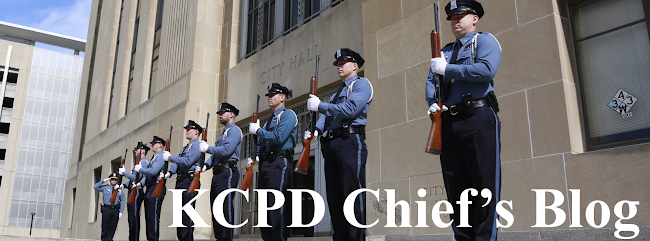When an emergency happens in Kansas City, I want everyone on
this department from the top down to be able to respond. That’s why we
conducted a commander call-out earlier this week, the second since I took the
office of Chief of Police.
The goal was to have all commanders (deputy chiefs, majors
and captains) respond to and work through a critical incident exercise. I want
all commanders to be more involved in large emergency events, and I want them
to exercise their critical thinking in a situation they don’t face on a regular
basis. It’s one of the reasons I require all commanders to do regular
ride-alongs with patrol officers. I want them to stay in touch with
street-level policing.
They did not know this week’s call-out was coming. The only
people who knew were the five department members who created and administrated
the exercise and me.
At 1:15 p.m. Monday, I ordered the Communications Unit (this
was a test for them, as well) to notify all commanders to report to the Police
Academy immediately, no matter where they were or what they were doing. Once
there, they were randomly divided into groups and presented with the critical
incident scenario: A man wearing an explosive vest walks into Police
Headquarters during the Republican National Convention (which Kansas City is
hoping to host in 2016) and demands the convention be stopped. We let them take
the scenario from there. There weren’t necessarily any right answers. I wanted
to ensure a few very basic points were covered – such as activating the
Emergency Operations Center and calling an Operation 100 at Headquarters.
Everyone did an excellent job. I was impressed with their
teamwork. No one pulled rank, and everyone listened to each other’s ideas. That
cooperation is necessary because a critical incident of this scale would
certainly be handled by a group of commanders, not just one. Working through
this kind of scenario allowed them to activate and utilize all the resources
the department has available, such as manpower, specialty units, federal
partners, neighboring law enforcement agencies and other city departments like
Emergency Management and Fire.
I want us to be responsive in a critical incident, not
reactive. In the police world, those are two different things. Responding to an
emergency means coming in with a rehearsed plan of action. It means police know
what needs to be done and who needs to do it, and they put their plan into
action as soon as possible. Reacting to an emergency means police are
unprepared and chaos reigns. A critical incident is not the time to work out
details. Exercises like this week’s ensure we are responsive.
Right after I became chief, we conducted a much
less-involved exercise in which I ordered the Communications Unit to contact
all commanders and tell them to come to a location to see how quickly they
responded and how they used their take-home vehicles. That covered response,
but I wanted this to engage their critical thinking skills.
This will not be the last time such a surprise exercise is
conducted. Why? Because someday it might not be an exercise. It might be the
real thing. If it is, I want a department of men and women who are prepared,
regardless of their assignment. Future exercises will include regional, state
and federal partners.
Send comments to kcpdchiefblog@kcpd.org.
